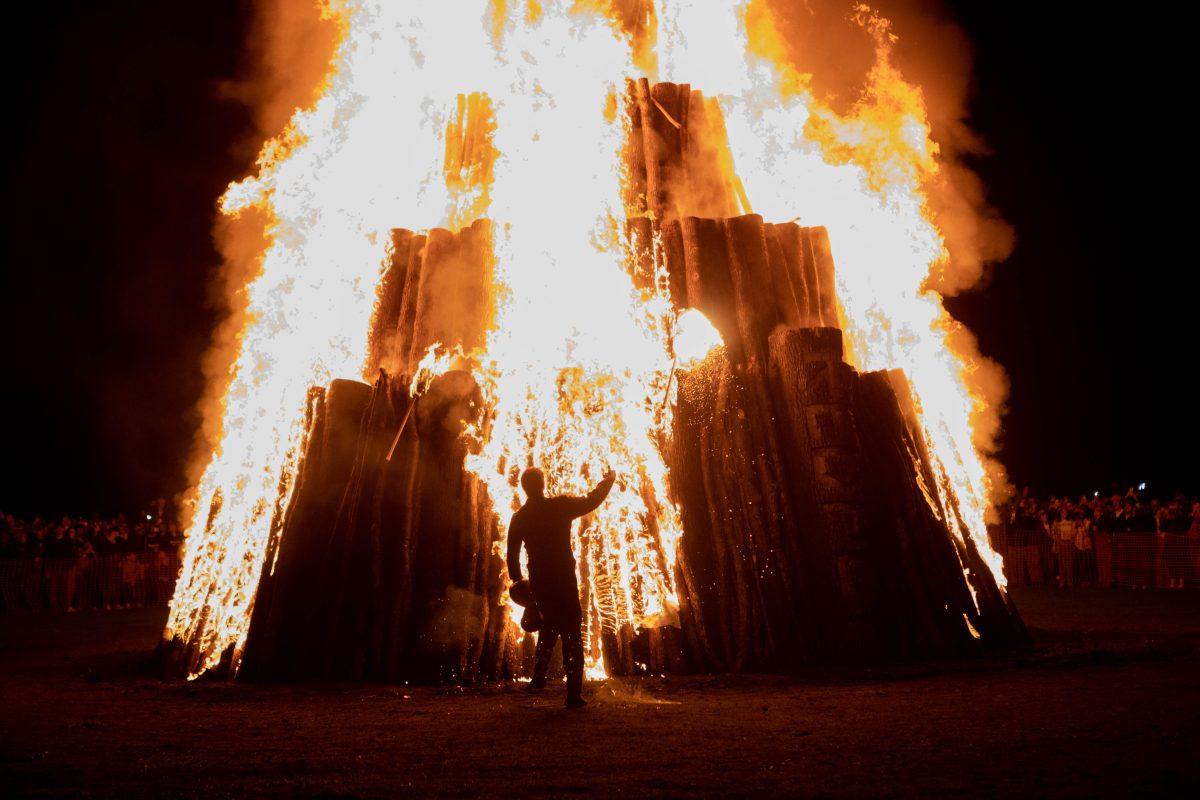I’ll never forget it.
I was the fastest kid in my quaint elementary school and was fired up to compete in the annual Olympics-style competition. The most anticipated event of them all was the 4x100m race.
Aside from a blue ribbon, as any boy who has been through the public education system would tell you, there is no greater honor than being the fastest kid in your grade from the ages of 5 to 12.
The P.E. coaches knew I was the fastest but wanted to make it competitive for the other kids. So, to offset this, they put me on a relay team with the three slowest kids in my grade. Out of the nine teams, we finished dead last.
On the drive home, I vividly remember staring at the booger green ribbon I was given for my team’s efforts, which read, you guessed it, “participation.” Not only was I disappointed that my swagger, status and official title as “that dude” were gone, but I felt I had been cheated out of something that was mine and given a participation ribbon instead.
The humiliation of the participation ribbon would forever set a precedent for the rest of my youth sports career. At the end of every season, no matter how well or poorly my team performed, we’d always have an awards banquet at a widely recognizable American restaurant chain — insert Applebee’s — and be bestowed a set of identical 20-something bronze trophies simply for being a part of the team.
Of course, this redundant ceremony has led to what we now refer to as the participation trophy generation. As any current undergrad Aggie could tell you, we belong to a generation that grew up not only accepting but expecting to be showered with praise for even the most minute of accomplishments.
Yeah, yeah, we know; we’ve heard it more times than we can count, but isn’t it strange that Gen. Z is now being blamed for the actions of our parents and the ones who made this common practice?
The issue is that by labeling an entire generation “soft” we’re grotesquely simplifying the larger picture and ultimately falling short of discovering the underlying issues. Furthermore, arguments like this contribute to a dialogue that is ineffective in addressing the behaviors and social change needed to properly fix them.
However, the participation trophy quandary is a unique case because there is at least some truth to this issue that has remained a heated talking point on Facebook forums for years.
Superficial recognition and the “everyone is excellent” mindset have bled into our schools with hyperinflated GPAs. Social media plays on our tendency to favor instant gratification so long as hundreds see it over putting our noses to the grindstone and working towards something truly admirable. Even at work, our performance reviews are a fruitless exercise more concerned with patting each other on the back than critical feedback.
If everything we touch turns to gold, what does that say about the value of gold?
This is what is wrong with participation trophy culture. Whether it’s kids receiving too much recognition for mundane achievements or being repeatedly told “Great work” time and time again only after fulfilling the basic parameters of your job, we begin to expect it in every facet of our lives.
“I spent eight hours studying for that exam. I deserve a better grade.” “I worked harder than Janice all year. Why did she get the promotion?” These are the self-entitled assumptions we arrive at in a trophy-obsessed era when all we did was what was initially expected of us.
I’m going to rip a page out of the Captain’s log of the USS Enterprise and quote Jean-Luc Picard, “It is possible to commit no mistakes and still lose. That is not a weakness; that is life.”
By demanding praise or recognition for everything we do, we’re watering down the achievements of the people who went above and beyond while also neglecting how failure can motivate someone who came up short to do better in the future.
I’ll spare you the Thomas Edison story about him finding 10,000 ways the lightbulb didn’t work; however, his journey along with several other influential figures is one as old as failure itself. J.K. Rowling, Michael Jordan, Walt Disney and Sylvester Stallone all attribute their success to initially being denied entry into a field they felt was their calling.
So, if you find yourself working towards something and not receiving ample credit, keep at it. Your determination will put you over the top. Not only will you achieve what you desired all along, but you’ll actually feel better about it due to the oodles of time and effort you put into it.
We all need to learn how to find pride in the everyday hardships and problems we work to resolve. You don’t need to cure cancer or be on a championship team to feel fulfilled.
Granted, you may not land behind a podium at an awards show droning on about your acceptance speech for filing your taxes or surprising your partner with tickets to their favorite artist, however, there is something to be said about being able to appreciate your feats both big and small.
If you fail to appreciate your accomplishments just because this person didn’t give you adequate amounts of praise or you weren’t given a plaque, you may be part of the problem.
Remember, just because you worked hard doesn’t mean you’re guaranteed a spot on the podium.
Benjamin Barnes is a telecommunication media studies senior and opinion columnist for The Battalion.































Marvin • Jul 1, 2024 at 8:32 am
Absolutely false. Participation trophies have existed for almost 100 years. Seems like past generations have done just fine. The point was to get children involved and gain positive experiences not just winning at all costs.